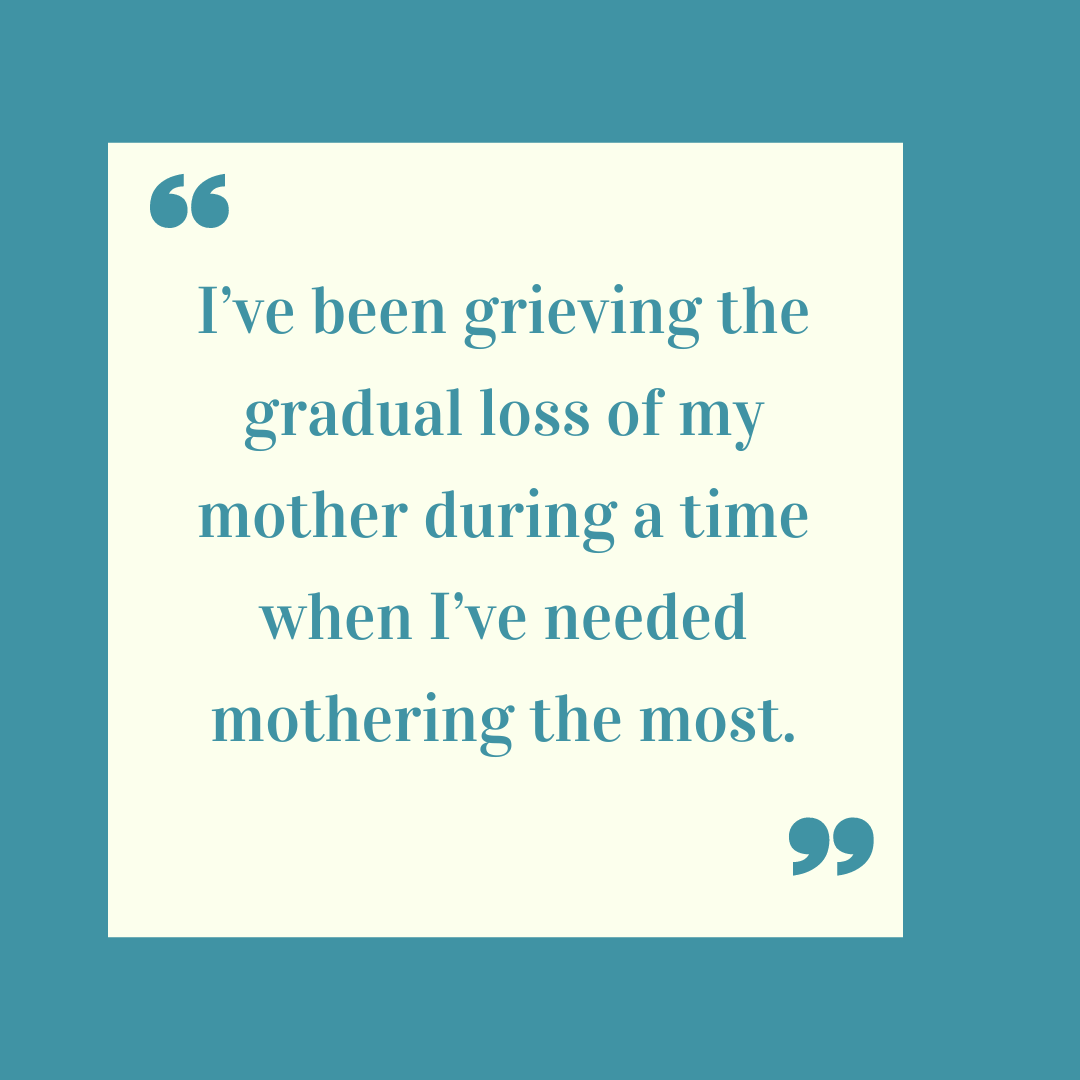Mothering & the Sandwich Generation
“Is this my mom?”
I wrap my body around hers in bed, hoping my warmth and the softness of my body will help her feel calm. She reaches for my hand, grasping, pleading: “Is this my mom?”
“It’s me. Your daughter,” I answer as my mama sighs and falls immediately back to sleep.
At this point, my 80-year old mama is descending rapidly into dementia. She still recognizes me, although she sometimes forgets my name, my children’s names. I smile when she refers to my partner of 30 years as my “lover” because his name escapes her, as well.
In the middle of the night, my stepdad needs to leave for a fishing trip - our version of respite care for him. I am determined to make sure he doesn’t lose access to his favorite, life-giving hobby while he is mama’s primary caregiver. At night, she has nightmares and violent fits - kicking, hitting, crying out - while she sleeps. Night-time psychosis is one of the most draining symptoms of her dementia. She hasn’t gotten a good night’s rest in years, nor has her husband. Last night, the plan was for me to move into my mom’s bed with her at 2:30 AM to soothe her when she has nightmares.
“Is this my mom?”
My whole life, my mama has given me head rubs that make me melt into sweet relaxation. A bedtime ritual when I was a little girl, a physical connection that has carried through into my adulthood.
If I answer her questions honestly about our family’s mental health and general state of wellness, it confuses her. The story that is currently unfolding around our fractured family does not jive with the memories of our happy (pre-pandemic) family that are fixed in her mind and heart. Even though she has difficulty following the twists and turns our lives have taken, she senses my pain and knows what I need - to be mothered by her.
I’ve been grieving the gradual loss of my mother during a time when I’ve needed mothering the most.
“Is this my mom?”
She offers to give me a head rub while I lie on the couch reading, light spilling through the windows of her beautiful home, bathing me in warmth. I have been desperately trying to practice radical acceptance, to acknowledge my grief, to accept this new inversion of our mother & daughter relationship. I thought the days of her comforting me were over. Tears well up in my eyes as I melt into her touch. The head rub heals me, breaks me wide open, repairs my broken heart, just a little.
This is my mom



